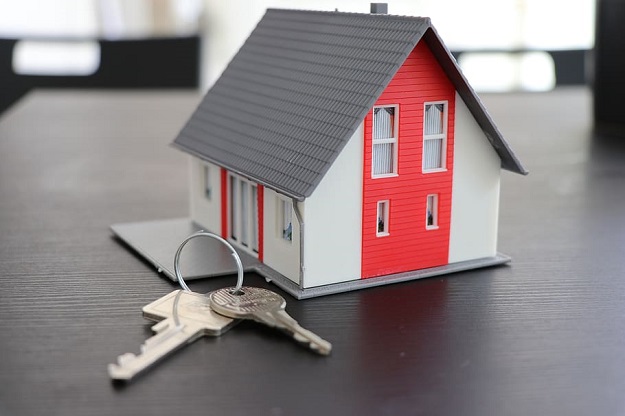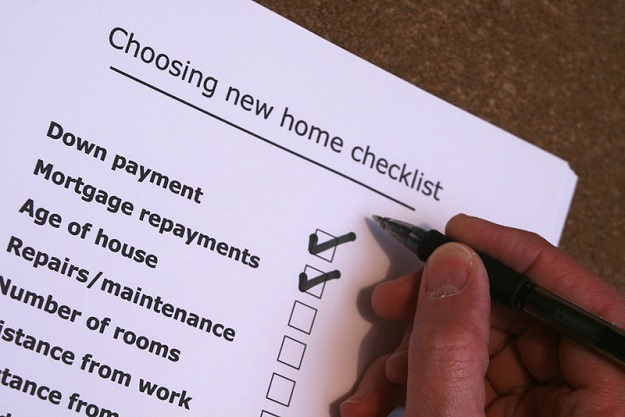Buying your first house in an experience unlike any other. It’s a right of passage – and you’re likely not going in blind.
You’ve been saving. You’ve been scouting houses online, but there are things you should know along the way that can make the home-buying experience joyful and rewarding.
How much home can you afford? Find out here!
Here are some tips for first-time home buyers.
Patience is Key
Real estate transactions are layered with many processes, each of which takes time.
Your home mortgage loan application will take about 30 days – longer if it takes you time to gather documents to verify income and expenses, and records of all of your accounts.
Shopping for the right house may take some time, but it passes rather quickly since that’s the exciting part. But even if you’ve found the perfect home to buy, you’re still only at the starting gate.

The whole process could take 90 days or more, which can feel like an eternity when you’re anxiously awaiting your new lifestyle.
You may also feel pressure during the transaction while your contract is in negotiations, the house is appraised and inspected, and while the paperwork is all in progress.
At any point during this phase, the contract could still fall through. Try to be patient. Most transactions go off without a hitch. Trust your real estate agent to guide you through the steps.
Tips for First-Time Home Buyers
Don’t Fall in Love with a Property Just Yet
You might feel it in your gut, that it felt like home when you stepped foot in the door.
It may have the layout you like in a neighborhood you love, close to good schools and parks, with easy access to shopping, dining, and recreation – but if you love it, and if it’s in your price point, there’s a significant possibility that other buyers have got their eye on it as well.
Not only will you have to make it through the offer and negotiation phase (or start the house-hunt over), there are still many places where the deal isn’t yet solid.
If you emotionally connect to a property too soon, you could set yourself up for a depressing setback. Keep your options open.
Prepping Money and Numbers for Buying Your First Home
You may already be aware that most home purchases require a deposit of 20 percent of the amount that you’re borrowing. If you’re purchasing a $300,000 home, your down payment can be as high as $60,000, unless you’ve found an assistance program. But the down payment isn’t all you’ll need in cash out-of-pocket. Buyers also pay closing costs.
Closing costs is a phrase used to encompass all of the expenses accrued during your transaction, such as appraisals, inspection, title check and transfer, etc. You don’t pay each provider individually. Instead, you pay the expensive collectively at the close of the sale.
Usually, closing costs, which you can estimate between two and five percent of the loan amount, are not incorporated into your home mortgage loan, although some lenders may make exceptions.

Also, when you submit an offer on a house, you’ll submit an earnest money deposit to the tune of about one to two percent of the value of the home. That, also, is cash out-of-pocket.
To qualify for a home mortgage loan, you’ll need a credit score of at least 620 or higher, and a debt-to-income ratio (DTI) of 36 percent or lower.
It’s also crucial that you pay off any outstanding debts, don’t finance any major purchases, and curb spending as much as possible.
You may want to establish an emergency fund to avoid being house-poor and so that you’re prepared for the unknown.
Get Pre-Approval for Your Home Mortgage Loan
Pre-approval for your home mortgage loan is critical for several reasons.
First, pre-approval empowers you to buy, to move forward with an offer immediately once you’ve found a house you’d like to buy.
On the other hand, if you haven’t started the application process yet, you can’t guarantee you’ll be approved, you won’t know your budget, and you’ll also be asking sellers to wait while you take care of your end of the business.
If there are competing offers on the house, your pre-approval could give you an upper-hand over a buyer who isn’t yet funded.
Furthermore, your pre-approval lets you know without question the price point in which you should be shopping.
Shop lenders for rates and terms to select a lender that’s right for you.
Also, research Federal and local programs that may be able to assist with down payment and/or closing costs.
You may also ask your real estate agent if he or she has an existing relationship with a lender they’d refer you to or if they know of any programs that may benefit you.
Measure Your Wishlist Against Your Price Point
Your wish list, which you’ve probably been dreaming up for some time, has become refined. You know precisely what you want in a house – from the type of flooring, countertops, and cabinets to the location and local amenities.
However, your house-buying budget may not stretch that far. You may have to choose a smaller home, fewer features, or consider an alternate neighborhood.

Talk with your real estate agent about the things you want in a home, what you feel you must have, and what types of things would qualify as deal-breakers for you.
Your agent will help you understand current market trends in real estate, and how much house you can get for your money. Then, you can house-hunt your heart out until you find a home you’re ready to make an offer on.
Offers and Negotiations
Submitting your offer can feel like a tense process while you wait for the seller to make or break your dream. Sometimes, your offer hits its mark on the first try.
Other times, your agent can negotiate terms that satisfy both you and the seller. But in the case of multiple offers, you may find yourself competing against motivated buyers.
Know your boundaries – your highest price – and stick to them, even if it means walking away. But once your offer is accepted, you’re halfway there.
Finding the Right Real Estate Agent
Real estate agents have different areas of expertise, varying certifications, and diverse personalities. Your goal is to interview real estate agents (at least three) until you find one who fits your unique needs and personality.

Your agent will help you along with every step of the transaction. If needed, they may be able to offer valuable resources during the home loan application process. He or she will help you refine your wish list to accommodate your budget.
The agent will show you homes that meet your criteria, help you draft a competitive offer, negotiate on your behalf and help you through the closing process.
Conclusion
Enter your home-buying journey knowing you’ll need patience. Hire the right real estate agent. Plan for your finances and prepare your credit report.
Don’t emotionally attach to property until the deal is done. Understand that when you make an offer on a home, other buyers may try to compete with you. Trust your agent to negotiate for you.
Stay calm while the house undergoes an inspection, appraisal, survey, title check, and other necessary processes.
Ask your real estate agent about other tips for first-time buyers.




